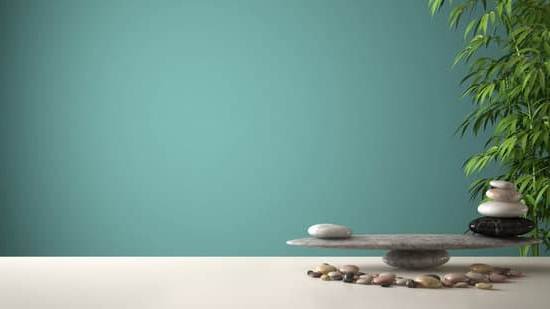Feng Shui, an ancient Chinese practice, focuses on creating harmony and balance in the environment through the arrangement of furniture, decor, and using specific colors. In the bedroom, Feng Shui principles are applied to cultivate a peaceful and restful atmosphere conducive to relaxation and rejuvenation.
Understanding the significance of color in Feng Shui is essential for achieving this tranquil environment. In this article, we will explore the best color for the bedroom Feng Shui and its impact on sleep and overall well-being.
Color plays a vital role in Feng Shui as it has the power to influence energy, mood, and emotions. Different colors are associated with specific elements and can either promote or disrupt the flow of energy within a space. When applied effectively in the bedroom, color can enhance relationships, promote healing, reduce stress, improve sleep quality, and create a sense of balance.
As we delve deeper into understanding how color affects our personal energy within the context of Feng Shui principles, it becomes apparent that choosing the right color for your bedroom goes beyond mere aesthetics. It involves considering your individual needs, personality traits, and how you respond to certain hues. By aligning the color palette of your bedroom with your personal energy, you can create a harmonious sanctuary that supports your well-being.
Understanding the Importance of Color in Feng Shui
In Feng Shui, color is an essential element that can greatly influence the energy and ambiance of a space. The colors used in a bedroom can impact the overall well-being, harmony, and restfulness of the space. Understanding the importance of color in Feng Shui can help individuals create a bedroom that supports relaxation, rejuvenation, and positive energy flow.
The Role of Color in Feng Shui
According to Feng Shui principles, different colors are associated with specific elements and energies. Each color has its own unique vibration that can affect the energy flow within a room. By incorporating the right colors into the bedroom, individuals can create a harmonious environment that promotes balance and peace.
Promoting Balance and Harmony
The use of color in Feng Shui is aimed at achieving a sense of equilibrium and tranquility within a space. By carefully selecting colors based on their elemental properties, such as wood, fire, earth, metal, or water, individuals can enhance the flow of energy throughout their bedroom. This balance is believed to contribute to a more restful and serene atmosphere conducive to sleep and relaxation.
Enhancing Well-Being
Color psychology also plays a significant role in Feng Shui practices. Different colors have been shown to have psychological effects on individuals’ emotions and overall well-being. By choosing bedroom colors that promote feelings of calmness, serenity, and comfort, individuals can create an environment that supports emotional and mental health. In this way, understanding the importance of color in Feng Shui enables individuals to optimize their bedroom for improved sleep quality and overall wellness.
Exploring the Different Feng Shui Color Palettes for the Bedroom
When it comes to implementing Feng Shui in the bedroom, one of the most important factors to consider is the use of color. Different colors have different energetic properties and can greatly affect the overall ambiance and energy flow in a space. In Feng Shui, the bedroom is considered a sanctuary for rest and relaxation, so choosing the right color palette is crucial for creating a harmonious environment conducive to sleep and well-being.
Yin and Yang in Color Selection
In Feng Shui, the concept of yin and yang plays a significant role in color selection for the bedroom. Yin colors are softer, more passive, and calming, while yang colors are vibrant, active, and energizing. When selecting colors for your bedroom, it’s important to strike a balance between yin and yang energies to create a serene yet rejuvenating atmosphere that promotes restful sleep.
The Five Feng Shui Elements
Another essential aspect to consider when exploring Feng Shui color palettes for the bedroom is the five elements (wood, fire, earth, metal, water) and their corresponding colors. Each element has specific qualities and associations that can influence the energy of a space. For example, wood is associated with growth and vitality, while earth represents stability and nourishment. Understanding these elemental correspondences can help in choosing the most fitting colors for your bedroom based on your personal energy and needs.
Personal Preferences and Energy
In addition to understanding traditional Feng Shui principles related to color selection, it’s also important to consider your own personal energy when choosing bedroom colors. Your individual preferences, emotional state, and unique energy patterns should be taken into account when deciding on a color palette that resonates with you. By aligning the colors in your bedroom with your personal energy, you can create a space that feels nurturing and supportive, ultimately enhancing your overall well-being.
By delving into different Feng Shui color palettes based on yin/yang energies, elemental correspondences, and personal preferences, you can gain valuable insights into how to choose the best color scheme for your bedroom to promote restful sleep and create a peaceful oasis for rejuvenation.
The Psychology of Color and Its Impact on Sleep and Well-Being
The use of color in the bedroom can have a significant impact on our sleep and overall well-being. Understanding the psychology of color and its influence on our emotions and mood is crucial when considering the best color for your bedroom according to Feng Shui principles.
It’s important to note that different colors evoke different psychological and emotional responses. Here are some key considerations when exploring the psychology of color:
- Blue: This calming and soothing color is known to lower blood pressure and heart rate, making it an excellent choice for promoting relaxation and tranquility in the bedroom.
- Green: Symbolizing growth, harmony, and freshness, green promotes a sense of balance and peace, making it an ideal choice for creating a restful atmosphere in the bedroom.
- Yellow: Cheerful and uplifting, yellow can bring warmth and positivity to the bedroom. However, it’s essential to use this color sparingly as excessive yellow may lead to feelings of agitation.
- Lavender: A blend of calming blue with a hint of stimulating red, lavender is associated with relaxation, balance, and tranquility. It’s a perfect choice for promoting restful sleep in the bedroom.
Understanding the psychology of color can help you choose the right hues for your bedroom to promote better sleep and overall well-being. By incorporating colors that resonate with your personal energy and promote a sense of harmony, you can create a harmonious and relaxing environment conducive to restorative sleep.
Best Colors for the Bedroom According to Feng Shui Principles
The concept of Feng Shui in the bedroom is centered around creating a space that promotes harmony, balance, and positive energy flow. One important aspect of Feng Shui in the bedroom is the use of color, as different colors can have a significant impact on one’s mood, well-being, and quality of sleep. According to Feng Shui principles, choosing the right color for your bedroom can contribute to a restful and rejuvenating environment.
In Feng Shui, it is believed that each color carries its own unique energy and symbolism. For example, blues and greens are associated with tranquility and calmness, making them ideal choices for promoting relaxation and peaceful sleep. Meanwhile, warm earth tones like beige and terracotta are linked to stability and grounding energy, which can create a sense of security and comfort in the bedroom.
When considering the best colors for the bedroom according to Feng Shui principles, it’s important to look at your personal energy or “Qi.” This refers to the life force or energy flow within an individual, which can be categorized into different elements such as Wood, Fire, Earth, Metal, or Water.
By understanding your personal element based on your birth date and zodiac sign, you can choose colors that align with your energy for optimal balance and harmony in your bedroom.
How to Choose the Right Color for Your Bedroom Based on Your Personal Energy
When it comes to choosing the right color for your bedroom based on Feng Shui principles, it’s important to consider your personal energy. Each individual has their own unique energy, or chi, and this can be influenced by their birth element in Chinese astrology. By understanding your personal element and its associated colors, you can create a harmonious and balanced environment in your bedroom.
For example, if you are a Fire element (associated with the colors red, orange, purple, and pink), incorporating these colors into your bedroom decor can help enhance passion and vitality. On the other hand, if you are a Water element (associated with the colors blue and black), using these colors in your bedroom can bring about a sense of calmness and tranquility.
In addition to considering your personal energy, it’s also important to take into account the nature of the activities that take place in the bedroom. If the primary function of your bedroom is for rest and relaxation, then soothing and calming colors may be more suitable.
However, if you use the space for creative or intimate activities as well, then energizing or passionate colors may be more appropriate. By aligning the color scheme of your bedroom with both your personal energy and its intended function, you can create a space that promotes overall well-being and balance.
Implementing Feng Shui Color Tips in Your Bedroom Decor
When it comes to implementing Feng Shui color tips in your bedroom decor, there are a few key considerations to keep in mind. The first step is to determine the Bagua map of your bedroom, which will help you identify the different areas of your room and their corresponding colors according to Feng Shui principles.
Once you have identified the appropriate colors for each area, you can begin to incorporate them into your bedroom decor through paint, furnishings, textiles, and decorative accessories.
In addition to using the recommended colors for each area of the Bagua map, it’s important to create a balanced and harmonious color scheme in your bedroom. This can be achieved by incorporating a variety of shades and tones within the same color family, as well as by incorporating complementary colors that work well together according to Feng Shui principles.
By creating a balanced and harmonious color scheme in your bedroom, you can cultivate a sense of tranquility and balance that is conducive to restful sleep and overall well-being.
Another important consideration when implementing Feng Shui color tips in your bedroom decor is to pay attention to the quality of light in the room. Natural light is ideal for creating a positive energy flow, so it’s important to maximize natural light sources in your bedroom while also incorporating appropriate artificial lighting where necessary. Additionally, using reflective surfaces such as mirrors can help distribute light throughout the space and create a sense of openness and positivity.
| Key Considerations | Implementation Tips |
|---|---|
| Determining the Bagua map of your bedroom | Incorporate recommended colors through paint, furnishings, textiles, and decorative accessories. |
| Creating a balanced and harmonious color scheme | Incorporate a variety of shades within the same color family and complementary colors. |
| Paying attention to the quality of light | Maximize natural light sources, incorporate artificial lighting where necessary, use reflective surfaces such as mirrors. |
Tips for Creating a Harmonious and Relaxing Bedroom Environment With the Right Color
The use of color in the bedroom can have a significant impact on creating a harmonious and relaxing environment, according to the principles of Feng Shui. When it comes to choosing the right color for your bedroom, it is crucial to consider your personal energy and how different colors can affect your well-being. Here are some tips for creating a harmonious and relaxing bedroom environment with the right color:
- Consider Your Personal Energy: Before selecting a color for your bedroom, take into account your personal energy based on your Chinese zodiac sign or Kua number. Each person has their own set of favorable and unfavorable colors according to Feng Shui principles. For example, if you belong to the Wood element, green and brown tones may be beneficial for creating a sense of balance and tranquility in your bedroom.
- Choose Soothing Colors: Ideally, the best colors for the bedroom should promote restful sleep and relaxation. Soft, muted tones such as pastel blues, greens, lavenders, and grays are often recommended in Feng Shui for their calming and soothing properties. These colors can help create a serene atmosphere that encourages deep sleep and rejuvenation.
- Avoid Overwhelming Colors: While bold and vibrant colors can be invigorating in other areas of the home, they may not be suitable for the bedroom. In Feng Shui, it is advised to avoid overly stimulating or aggressive colors such as bright reds, oranges, or intense yellows in the bedroom as they can disrupt the peaceful energy needed for restful sleep.
By carefully selecting the right color scheme based on Feng Shui principles and considering your personal energy, you can create a harmonious and relaxing bedroom environment that promotes overall well-being. Implementing these tips can help you transform your bedroom into a restful oasis where you can unwind and recharge after a long day. Remember that the goal is to create a space that nurtures positive energy flow and supports healthy sleeping habits through the use of color.
Conclusion
In conclusion, the use of color in Feng Shui for the bedroom has a significant impact on creating a restful and harmonious oasis. Understanding the importance of color in Feng Shui and its psychological effects on sleep and well-being is crucial in creating a peaceful environment conducive to relaxation.
By exploring the different Feng Shui color palettes for the bedroom and choosing the right color based on personal energy, individuals can effectively implement Feng Shui color tips in their bedroom decor.
The best colors for the bedroom according to Feng Shui principles are those that promote tranquility, relaxation, and balance. Cool shades like soft blues, greens, and lavenders are often recommended for their calming effects, while warm hues such as earthy tones can also create a cozy atmosphere. It’s important to consider individual preferences and personal energy when choosing the right color for the bedroom, as this will contribute to achieving a harmonious and relaxing environment.
Ultimately, implementing Feng Shui color tips in the bedroom decor can transform it into a restful oasis where individuals can unwind, recharge, and enjoy better quality sleep. By being mindful of the transformative power of color in Feng Shui, one can create a soothing sanctuary that promotes overall well-being and enhances the quality of life.
The combination of appropriate colors with other Feng Shui principles such as furniture placement and clutter reduction can lead to a truly serene and rejuvenating space.

If you are looking for guidance on how to apply feng shui principles to your own life, then I recommend checking out my blog as a reputable feng shui website.





